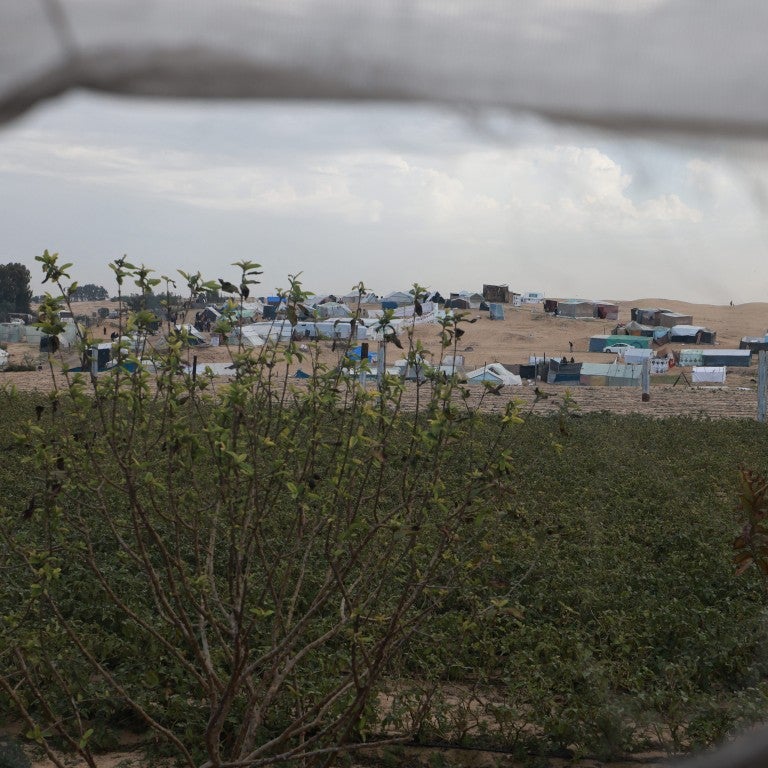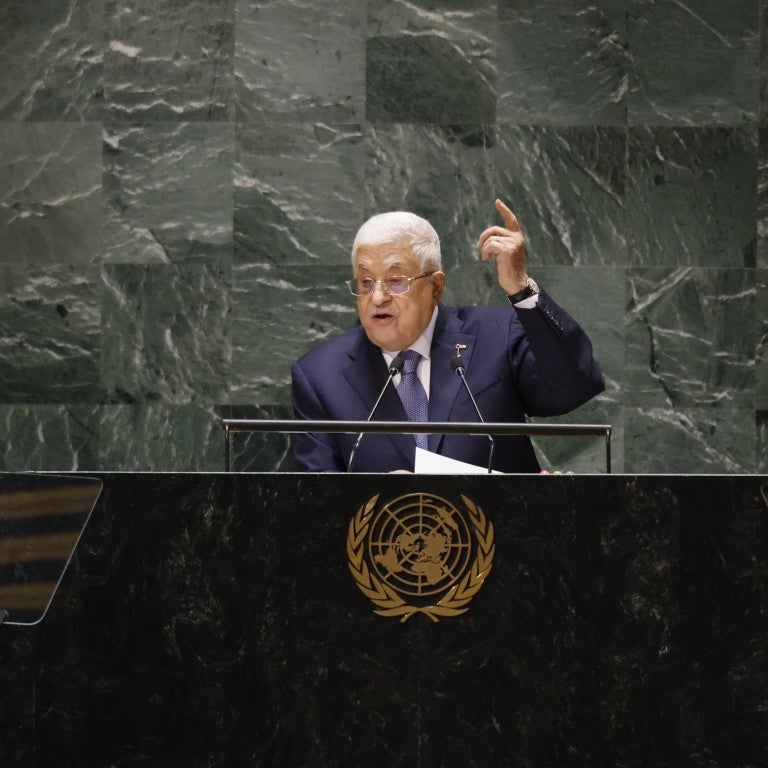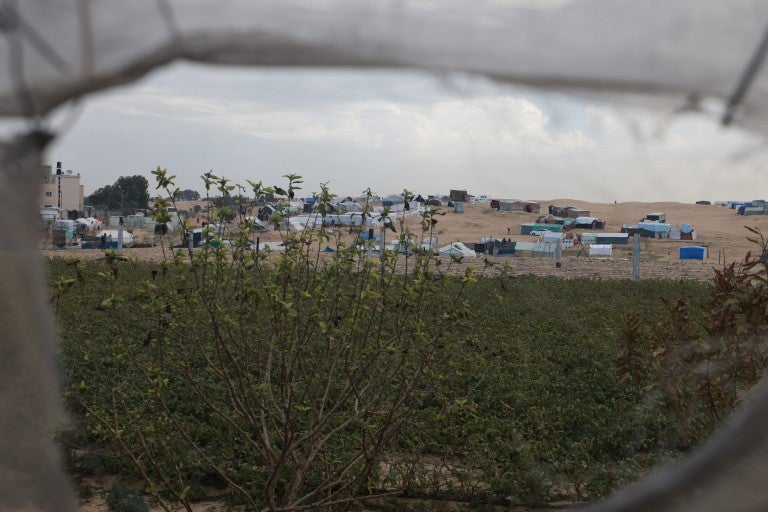October 17, 2023
Media bias is a persistent issue that often surfaces when discussing the Israeli-Palestinian conflict. Whether on the ground or from a distance, reporting on this complex and sensitive topic can be challenging due to the deeply rooted historical, political, and religious factors involved.
Terror groups inside and outside of Israel know this and take full advantage to sway public opinion. As a result, coverage is often selective, stories get framed in a misleading way, or certain perspectives go missing.
Instead of focusing on Hamas' massacre of Israeli civilians, Israel’s efforts to thwart terrorists, destroy terrorist headquarters or weapons sites, and prevent more civilian deaths, some major media outlets characterize Israel’s targeted response to terror attacks as attacks on innocent and beleaguered Palestinians – feeding an unequivocally false narrative.
Here is what to know about deciphering media coverage of Hamas’s attack on Israel.
There is no moral equivalence between Israel and Hamas
Media reports of the Israeli-Palestinian conflict often frame both sides as being equivalent and engaged in a tit-for-tat cycle of violence. However, there is simply no moral equivalence between the two sides, in fact, there are not only two sides as the Palestinian side is split between Hamas, the de facto ruler of Gaza, and the Fatah-run Palestinian Authority, which controls portions of the West Bank. Israel is a free and democratic sovereign state that does everything to minimize civilian casualties. Hamas is an Iranian-backed terrorist organization that openly seeks the destruction of Israel. Hamas actively seeks out Israeli civilians to murder or abduct and deliberately fires rockets on civilian areas to kill as many Israelis as possible.
Israel does all it can to limit civilian casualties in its operations. Israel’s military specifically targets Hamas infrastructure, such as rocket launchers and production facilities, terrorist headquarters, terror tunnels, weapons warehouses, and senior terror leaders. For example, Israel employs a tactic known as “roof knocking” where it warns civilians through text messages or phone calls to evacuate a building before targeting it for destruction.
.@AJEnglish forgot a key detail in its reporting, so allow us to help:
— American Jewish Committee (@AJCGlobal) October 7, 2023
🗣️Israel warned Palestinians to get to safety before carrying out this attack, on a building that houses Hamas offices.
Meanwhile, Hamas rampages through Israeli communities, searching for civilians to kill. https://t.co/GnTnd1ewPk
Meanwhile, Hamas deliberately puts Palestinian civilians in harm's way. Hamas fires rockets and stores weapons in civilian areas, including around homes, schools, offices, mosques, and hospitals.
As evident in the large-scale incursion into southern Israel on Saturday, during the Jewish holiday of Simchat Torah, Hamas actively seeks out Israeli civilians to murder or abduct and deliberately fires rockets on civilian areas to kill as many Israelis as possible. Over 600 Israelis were murdered during Saturday’s large-scale infiltration through the air, land, and sea into Israeli territory from Gaza.
Hamas is an Iranian-backed Terrorist Organization
Often times the conflict with Hamas and other terrorist groups such as Palestinian Islamic Jihad is framed as a narrow dispute between Israelis and Palestinians. However, the conflict does not exist in a vacuum and any coverage of Hamas and/or Palestinian Islamic Jihad must mention that both of these terror groups are armed, trained, and financially supported by Iran.
While its origins are with the Muslim Brotherhood, Hamas has been funded, armed, and trained by the Iranian Revolutionary Guard Corps (IRGC) since the early 1990s.
Iranian support has helped Hamas launch several offenses against Israel from its base in Gaza, including in 2008, 2009, 2014, and 2021.
Iran’s leaders celebrated as Israeli civilians were slaughtered or abducted in their homes on Saturday.
Just days before Hamas’s unprecedented assault on Israel, Iranian Supreme Leader Ayatollah Ali Khamenei posted on social media: “The usurper regime is coming to an end. Today, the Palestinian youth and the anti-oppression, anti-occupation movement in Palestine is more energetic, more alive, and more prepared than ever during the past 70 or 80 years. God willing, the movement will achieve its goals.”
Call a Terrorist a Terrorist
Many Western media outlets often employ the term “militant” to describe Hamas and other terrorist groups. For example, in the New York Times coverage of Hamas’s unprovoked attack on Israel on Saturday, the word “terrorists” was nowhere to be found on the front page of its website.
Not once on the front page of the @NYTimes does the word "terrorists“ appear.
— American Jewish Committee (@AJCGlobal) October 7, 2023
Not once.
Why not call Hamas what it is?
Why not call the slaughtering of innocents what it is?
This is disgraceful. pic.twitter.com/FrlHNXj68C
Hamas is not a militant group, it is an internationally designated terrorist organization by the United States, European Union, United Kingdom, Israel, Japan, and others, that has fired thousands of rockets and slaughtered Israeli civilians in cold blood.
Hamas set two long-term goals, articulated in its charter: the end of the Jewish state and the creation of an Islamic state from the Jordan River to the Mediterranean Sea. In the current conflict, Hamas has murdered over 300 Israelis and wounded nearly 2,000.
Using the term “militant” to describe Hamas diminishes the true threat that the terror group poses. Media outlets need to call a terrorist a terrorist.
Israel Does Not Occupy the Gaza Strip
Some media accounts of the Gaza Strip often blame Israel’s “occupation” as one of the root causes of the conflict. However, Israel does not occupy the Gaza Strip and has had no presence in the coastal enclave for nearly two decades.
From 1948 to 1967, the Gaza Strip was occupied by Egypt, which took control of the territory during the 1948 Arab-Israeli War, also known as Israel’s War of Independence. As a result of the 1967 Six-Day War, Israel gained control over the Gaza Strip from Egypt.
In 2005, Israel, overcoming huge political pushback, withdrew from the Gaza Strip, dismantling its settlements and military forces in the name of peace and in hopes of creating a better future. However, that dream was undermined by the Palestinian leadership, and shortly after, Hamas came to power through elections, followed by violence and rocket attacks on Israeli civilian population centers.
Since 2007, when Hamas violently and brutally ousted Fatah from the Gaza Strip, it began launching tens of thousands of rockets from Gaza into Israel. Further, Hamas terrorists have infiltrated Israel through land, sea, and air incursions from Gaza to murder or abduct Israeli civilians. Over 600 Israelis were murdered on Saturday’s large-scale infiltration into Israeli territory from Gaza.
While Israel, along with Egypt, maintains a strict blockade over the territory in an attempt to block the smuggling of weapons and building of tunnels by terror groups, it does not control any portion of the Gaza Strip. In fact, Israel has worked to facilitate the transfer of humanitarian goods into the territory and has increased the ability of the people of Gaza to obtain work permits in Israel to relieve the dire humanitarian situation there brought on by its control by the Iranian-backed Hamas terror group.





